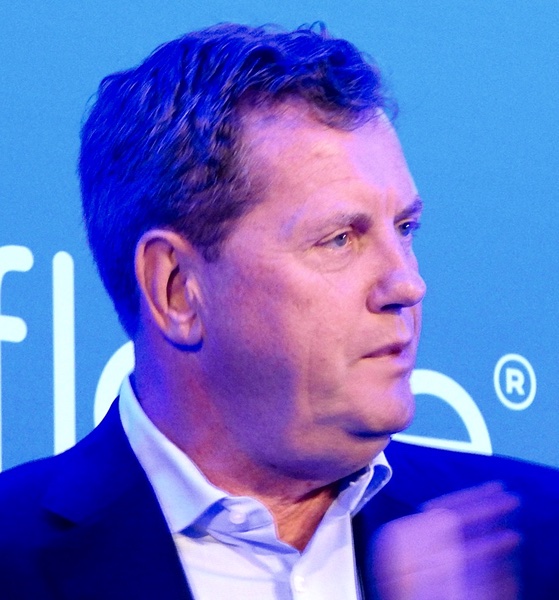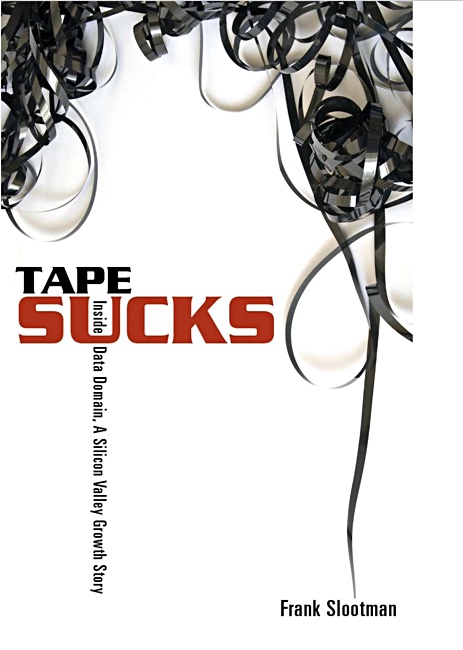We may never exactly know why the investors of Snowflake unceremoniously dumped its chairman and CEO Bob Muglia, just a few months after a $450m funding round that valued the cloud data warehouse startup at $3.5bn. Under his tenure, Snowflake’s customer count grew from 80 in June 2015 to more than 1000 in January 2018.
The simplest explanation is that investors wanted someone with a proven track record to grow companies even more quickly and take to IPO. That someone was Frank Slootman.
Cloud shift
Snowflake is a cloud data-warehouse-as-a-service company operating in a sector expected to grow to $4.69bn revenues by 2024. Competitors include Vantage, SAP, Yellowbrick Data, Microsoft Azure and AWS.
As we wrote in June 2019: “data warehousing is shifting inexorably to the cloud, but customers still look for platforms that offer the traditional relational database tools at their core. This is good news for Snowflake.”
Slootman the revenue grower
So why did the Snowflake VCs call on Slootman? In the data storage world Slootman is a celebrity CEO, thanks to his tenure as president and CEO at Data Domain between June 2003 and July 2009. In his book “TAPE SUCKS: Inside Data Domain, A Silicon Valley Growth Story” he wrote:
“I was CEO of Data Domain, Inc. from the summer of 2003 until its acquisition by EMC during the summer of 2009. At the time I joined, Data Domain had about 20 employees, no customers, no revenues, and a few units in field test. With a few million dollars left in the bank, we were months away from running out of money.
“During the next six years, Data Domain grew to sell more than all its competitors combined. We broke the billion-dollar sales barrier in less than seven years, adding more than one thousand employees and six thousand enterprise customers worldwide. We were seen as the “eight hundred pound gorilla” in the space, but we sure did not start out that way.”
He had built a monster and Data Domain still dominates the purpose-built backup appliance market, 11 years on.

Slootman was born in The Netherlands and moved to the USA in 1984 to work for Burroughs, then Compuware and software company Borland. That led to Data Domain.
After the Data Domain acquisition, Slootman spent two years inside EMC as president of the Backup and Recovery Systems Division. After leaving the company Slootman joined the board of Imperva, a cyber security business, and spent some time in venture capital, investing in startups. He also owned and sailing a boat called Invisible Hand and co-funded the Pac52 yachting regatta.

Slootman returned to executive responsibilities in April 2011, taking the chairman and CEO roles at the cloud service company ServiceNow. During his six-year tenure he help grow the business from $75m in annual revenues to $1.5bn. He did this in part by diversifying the product set so ServiceNow could sell to lines of business (LOBs) outside the IT department. These LOBS could switch on a service instead of needing their own software tools to manage processes.
After that it was board membership; Pure Storage, Medallia and Elementum SCM, and more VC investing with his own Invisible Hand Ventures. That lasted until April this year when he stepped into the chairman and CEO role at Snowflake. He is still on the boards at Pure and Elementum.
Blocks & Files is interested in finding out more about his character and had an email interview opportunity. We sailed straight in.
Blocks & Files: When you became chairman and CEO at Snowflake were you feeling restive? Did you still want to challenge yourself at the helm of a company that could do great things? I’m more interested in why you returned to the CEO frontline than the specific possibilities at Snowflake.
Slootman: Suppose there was an element of ‘restive’, people like me have an outsized combative temperament that needs an outlet I guess, but I never really decided to re-enter the workforce. I never talked to other companies. It was a very high bar after ServiceNow. I also did not like SaaS that much as a business model, felt it not equitable for customers.
Snowflake is a special company, they just don’t come along often. I could not resist having an opportunity to bring something to market this promising. I also had had enough time off, two years. Had they asked a year earlier, I likely would not have bit down on this.
Blocks & Files: What was it about Snowflake that attracted you? What did the Snowflake board want from you that they could not get from other potential CEOs and that was lacking in the company at that point?
Slootman: Snowflake has extraordinary upside. The company is going to have a great outcome regardless of who is CEO. But the question became how great that outcome could be. It is highly unusual for a board to make leadership changes in a company that is doing well, like Snowflake. They obviously felt they would materialize more of that upside with me at the helm. Time will tell, of course. As in sailing, the ability to rapidly shift so-called ‘modes’ is crucial. We were undoubtedly slow to shift gears to pure scale execution, and we are dealing with that now every day and we will from here on out.
Blocks & Files: You were born and raised in The Netherlands. What brought to the USA? Was it purely the job with Burroughs or was there something else?
Slootman: I entered the US in 1984. I never worked in Holland, but was born, raised and educated there. In the mid 80s I tried to hire on out of school with IBM, they were the gold standard back then in the so-called computer industry. I was rejected at least a dozen times by IBM. I hired on with Burroughs instead. I worked on the merger of Burroughs and Sperry which became Unisys. I was never a mainframe guy. I helped the company move its software to non-mainframe platforms that started to emerge on UNIX in the late 80s. It was hard for me to work in a big company, too slow and rigid, just not inspired.
I always felt I was born in the wrong country. The energy, buoyancy, and temperament in this country greatly appeal to me. I am truly a hybrid Dutch-American. I have American citizenship, which I treasure greatly, but there is no denying my Dutch roots
Corporate management
Blocks & Files: You were effectively a startup CEO at Data Domain. At ServiceNow and also at Snowflake you replaced previous CEOs who had already built the companies to substantial sizes. Are you now a professional CEO rather than a startup boss? How would you define your role?
Slootman: My role is situational. I become the CEO I need to be, the one that the situation warrants. It also changes over time. I have no playbooks, I am entirely situational and operate on so-called first principles. Experience obviously enters into it, but I try not be a pattern matcher or be confined to my own past. I do prefer the earlier stages of growth. I don’t like there to be too many layers between me and the action.
Blocks & Files: Which other CEOs do you admire and why?
Slootman: I admire CEOs that have a relentless, unapologetic focus on the business. Jeff Bezos comes to mind first, I have learned lessons from Amazon just observing from afar.
Blocks & Files: Do you believe it best or necessary for yourself that the chairman and CEO roles be combined? Why do you, as it appears, prefer that?
Slootman: Whether the board gives me the chairman title or not does not matter. I will still behave as if I am the chairman. A CEO must lead a board, period. That doesn’t mean there isn’t room for discussion and debate but I will never create or leave a leadership vacuum in the board room. The appearances do not bother me. Most people have no clue what really goes on in board rooms.
Sailing
Blocks & Files: Are you still involved in regatta racing with your yacht Invisible Hand? What is the appeal of that? Do you get on with Larry Ellison with regard to sailing? Is there competition there?
Slootman: Sailing is in one’s blood. I campaigned our TP52 ‘Invisible Hand” for three years. We won many races, including the Transpac overall in 2017, but I sold and donated all my boats so I can concentrate on the Snowflake journey. I need to spend the little bit of time I have left over with my family, not sailing. I will return to it at some point. I have never crossed paths with Larry Ellison on the sailing front although I’ve had many crew over the years who sailed with Larry. Sailing is a small world.







